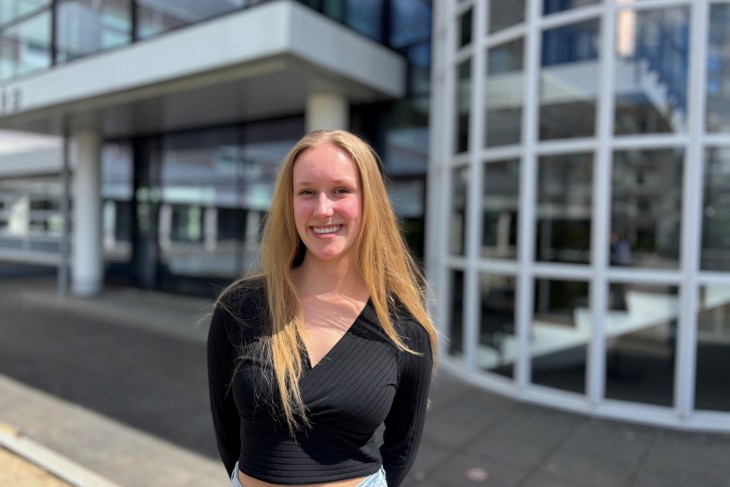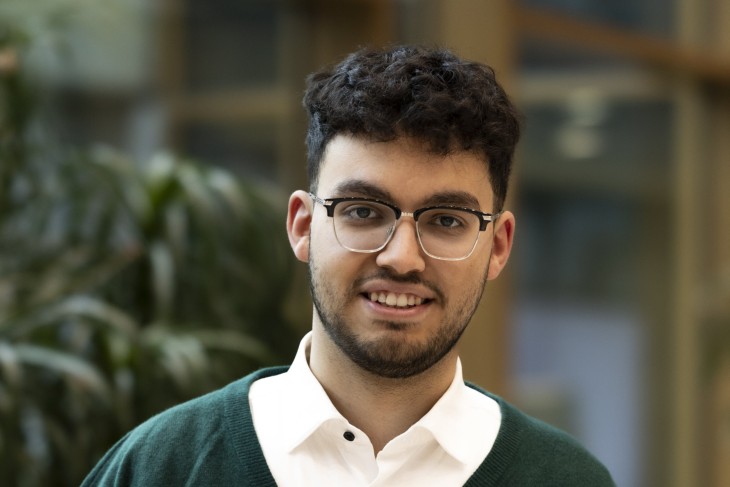“While considering where to study, I looked at universities in different countries, including Canada and Germany. Eventually, due to the higher tuition fees in Canada and my preference for living in a country where I can get along by speaking only English, I chose the Netherlands. The University of Twente caught my eye because of its campus: it’s full of greenery—gardens and fields—where you can study and relax. I liked the idea of living and learning in a place that practices what it preaches about sustainability.
As for the programme, I was torn between studying International Business Administration and Industrial Engineering & Management. My high school in Turkey, where I grew up, was focused on business management and calculus, but I wanted to choose a study where I’d learn to apply the knowledge. In the end, I decided that the Bachelor’s in Industrial Engineering & Management at the University of Twente would be the best fit for me as I would learn to make business processes more efficient. I get to analyse a company's strengths and weaknesses and then figure out how to improve its operations: that’s exciting!
Course highlights
There’s a big focus on calculus and statistics, which is crucial for understanding the steps in business processes. You learn how to make every part of a business run smoothly: getting raw materials, choosing the right machines, managing time, delivering the final product, and reducing costs.
I’m also dealing with other questions. For example: how many people will buy a certain product or come to an event? I’m learning to predict customer behaviour and use the data to make smart decisions about how much to produce and how to deliver it.
Real-world cases
I love the projects where we apply what we’ve learned to practical cases. In one project, my fellow students and I worked with data from a company that supports communities during and after disasters and crises. The goal was to help the company decide if they were making smart financial decisions.
We had to clean up a huge database, figure out what information was important, and create interactive dashboards to help the company monitor their spending on a specific disaster, like a flood in Philadelphia. This way, they could see if they were overspending. The graphs had to be interactive so that the employees could easily adjust them and get the information they needed. However, our graphs weren't interactive at first, and we had to figure out how to fix it. It was a lot of work, but we succeeded and learned a lot about analysing data, visualising it, and ensuring it was useful for real-world business decisions.
Aspirations
I used to be the Chief Operating Officer (COO) at a student startup that made drones. My role was to ensure everything ran smoothly—developing the business strategy, maintaining relationships with partners, managing finances, finding new opportunities, and pitching to investors.
I’d love to gain more experience, and I’m also considering a master’s degree, however, I haven’t decided which one yet. Everything I’ve learned in this programme—understanding how processes work, managing projects, problem-solving—will be useful no matter whether I end up into another startup or join a big company."




